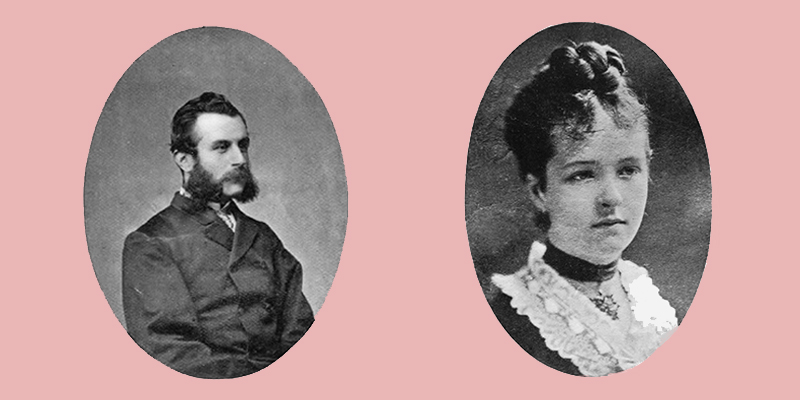Everyone knows Robert Louis Stevenson’s classic 1886 novella, The Strange Case of Dr Jekyll and Mr Hyde. It’s the story of a respectable, wealthy doctor who transforms into a murderous alter-ego and commits terrible crimes around London.
Stevenson’s life offers many possible inspirations. Born into a family of devoutly Presbyterian lighthouse designers, his young adult life saw a movement away from the conservative, Calvinist tenets of his upbringing, towards an extremely bohemian lifestyle. Dr Jekyll and Mr Hyde is a fascinating, subversive text about the urges, desires, and darknesses of ordinary people throughout London. As Vladimir Nabokov wrote in his essay on the novel, Mr. Hyde isn’t simply the “evil” version of the “good” Dr. Jekyll, but the part of him that is evil. Jekyll himself is a composite of his good and bad parts, and this way, the story isn’t so much about “good” versus “evil,” but how people are made up of countless, unknowable qualities that all balance each other out.
Stevenson’s interest in the different components of the human psyche certainly parallels currents of Victorian science, from phrenology (the now-defunct Victorian “science” that sought to explain how physiognomy relates to mental capacity) to alienism (the progenitor of “psychology”), that sought to understand “deviance” and difference in the human mind and speculate as to its causes.
But these matters were not abstract questions, for Stevenson. He encountered some of these issues rather directly, and most likely became inspired for the themes of The Strange Case of Dr Jekyll and Mr Hyde, when his own acquaintance, Eugène Chantrelle, suddenly murdered his own wife.
Chantrelle was a Frenchman who came to Edinburgh, Scotland, where Stevenson lived, to teach French at the exclusive Newington Academy. In 1866, when he was 32, Chantrelle began a relationship with one of his students, the 15-year-old Elizabeth Dyer. They were married in 1868, with Elizabeth giving birth to their child two months after the wedding. Stevenson met Chantrelle at the home of Victor Richon, his former French teacher.
According to an article in The Spectator from 1906, looking back on the case,
From the first the marriage was most unhappy ; the husband was repeatedly and ostentatiously unfaithful to his child-wife. He ‘beat her, kicked her, caned her, cursed her.’ More than once she had to invoke the protection of the law, and she was only restrained from petitioning for a divorce by dread of the scandal and exposure. Chantrelle sank into habitual intoxication. His classes fell off, and pecuniary difficulties were added to the wife’s other miseries.
Things came to a head in December of 1877. According to The Spectator,
On New Year’s Eve, 1877, Madame Chantrelle was in the usual good health which she bad enjoyed in spite of her wretched life. Her husband’s behaviour had been less brutal since the birth of the youngest child. The family dined happily together at their house in George Street, and a bottle of champagne was opened in honour of the festive season. On New Year’s Day she was unwell, but from purely natural causes. She had no appetite, suffered from sickness, and retired early to bed.
…
Article continues after advertisementThe next morning [the servant, Mary] Byrne came down shortly before seven, and while she was tidying up the kitchen she beard moans proceeding from her mistress’s bedroom upstairs. Hastily entering, for the door was about a foot open, she found Madame lying in bed with the bed-clothes partially off her, unconscious, “awfully pale-looking, her eyelids closed,” and now and again “moaning very heavily.” The girl roused her master, and between them they tried, though without success, to awaken the sleeper. At last, after considerable delay, Chantrelle went off to summon Mr. Carmichael, a general practitioner in the neighbourhood, who arrived at 8.30, to find Madame Chantrelle “profoundly and completely unconscious.”
Chantrelle had taken out a £1000 life insurance policy against his wife’s accidental death the year before. When the maid and the doctor arrived, there was a strong smell of gas in the room. But when Elizabeth passed away shortly thereafter, and her body was autopsied, the examiner determined that she had died of narcotic poisoning, not from a gas leak.
But, knowing the reputation of the Chantrelle household as one of abuse, Littlejohn did his duedilligence. The article continues,
The relations between Chantrelle and his wife were sufficiently notorious in Edinburgh, and immediately on quitting the house in George Street, Dr. Littlejohn, who was surgeon to the Police Office, had sent to request the gas company to inspect the premises. One of the gasfitters noticed in the architrave of the window in Madame Chantrelle’s bed- room a place from which a gas-bracket had been removed, and on opening the shutter he discovered a pipe loose between the architrave and the wall. On inspection the pipe was found to be broken, and from the hole the gas, when turned on at the meter, escaped freely;’ a piece of piping about two inches long was on the ledge at the foot of the shutter, and had evidently been wrenched off by bending backwards and forwards.
…
Article continues after advertisementBoth’ on the nightgown of the deceased and on the sheets of the bed were certain stains caused apparently by vomited matter. These were cut out and submitted to examination, but not until the police had discovered, locked up in one of the-rooms; enough drugs to stock a surgery, including various preparations of chloral and extracts of opium, both fluid’ and solid.
And so, on January 5th, 1879, at Elizabeth’s funeral, Eugene was arrested for her murder. He pleaded not guilty. The trial, which lasted four days, found him guilty, and sentenced him to death by hanging.
According to Historian Jeremy Hodges, Stevenson attended the trial. While he was known in some circles to behave monstrously to his wife, he was also known as a loving father. The article notes, “The only redeeming feature in her husband’s conduct was his uniform kindness to the children, two little boys ten and eight years old at the time of Madame Chantrelle’s death, and a baby born a few months before that event.” Certainly, this inkling of duality would have intrigued Stevenson.
Hodges has found, in Stevenson’s notes, a rumination on Chantrelle: “I should say, looking back from the unfair superior ground of subsequent knowledge that Chantrelle bore upon his brow the most open marks of criminality; or rather, I should say so if I had not met another man who was his exact counterpart in looks, and who was yet, by all that I could learn of him, a model of kindness and good conduct.”
In other words, as Jekyll says in his final letter, in the novel, “man is not truly one, but truly two.”

















